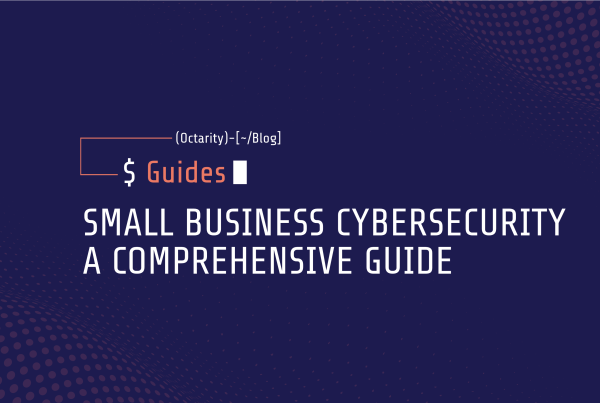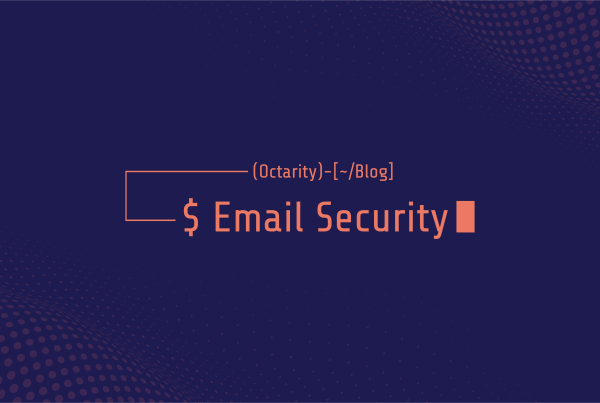In today’s interconnected digital world, email has become an indispensable tool for communication, collaboration, and business operations. Small businesses rely heavily on email to exchange sensitive information with clients, suppliers, and employees. However, with the increasing prevalence of cyber threats, it is imperative for small businesses to prioritize email security. In this blog post, we will delve into the significance of email security and why it should be a top concern for small businesses.
The Threat Landscape
Cybercriminals are constantly evolving their tactics, making email a prime target for malicious activities. Phishing attacks, ransomware, malware, and data breaches are some of the prevalent threats that can wreak havoc on small businesses. Hackers exploit vulnerabilities in email systems to gain unauthorized access to sensitive information, leading to financial loss, reputational damage, and legal consequences.
Protecting Sensitive Data
Small businesses often handle sensitive customer data, financial information, trade secrets, and proprietary data. Without adequate email security measures in place, this information becomes susceptible to unauthorized access and misuse. Email encryption, strong passwords, and multi-factor authentication are essential safeguards to prevent unauthorized interception and ensure the confidentiality of sensitive data.
Mitigating Phishing Attacks
Phishing attacks remain one of the most common and effective methods used by cybercriminals. These attacks deceive recipients into divulging sensitive information or clicking on malicious links, leading to data breaches or the installation of malware. Implementing email security measures such as spam filters, email authentication protocols (e.g., SPF, DKIM, and DMARC), and employee education on recognizing phishing emails are critical in mitigating these threats.
Preventing Email Spoofing
Email spoofing involves forging the sender’s identity to deceive recipients into believing that the email is from a trusted source. This technique is often employed by hackers to trick employees into sharing sensitive information or initiating unauthorized financial transactions. By implementing strong email security protocols, such as email authentication and digital signatures, small businesses can significantly reduce the risk of falling victim to email spoofing. Reach out to Octarity today to get a free email spoof assessment.
Defending against Ransomware and Malware
Ransomware attacks can cripple small businesses by encrypting critical data and demanding hefty ransoms for its release. Malware, including viruses and trojans, can infiltrate systems through malicious email attachments or links, causing significant disruption and financial losses. Robust email security solutions, including real-time scanning for malware and suspicious attachments, can help protect against such threats and prevent potential disasters.
Maintaining Business Continuity
A successful cyber attack can bring a small business to a screeching halt. Downtime resulting from a security breach can result in lost productivity, missed opportunities, and damaged customer relationships. By implementing email security measures like regular data backups, disaster recovery plans, and employee training, small businesses can minimize downtime, recover quickly, and ensure uninterrupted business continuity.
Preserving Reputation and Trust
Small businesses often rely on their reputation and trustworthiness to attract and retain customers. A data breach or email-related security incident can severely damage a company’s image and erode customer trust. By prioritizing email security, small businesses demonstrate their commitment to protecting customer data and safeguarding their interests. This, in turn, fosters trust, enhances brand reputation, and differentiates them from competitors.
Compliance with Data Protection Regulations
Numerous data protection regulations, such as the General Data Protection Regulation (GDPR) in the European Union and the Protection of Personal Information(POPIA) Act in South Africa, impose stringent requirements on the handling and safeguarding of personal information. Non-compliance with these regulations can result in severe penalties and legal consequences for small businesses. Implementing robust email security measures ensures compliance with these regulations and protects small businesses from costly legal battles.
Conclusion
In an era where cyber threats are ever-present, email security is paramount for small businesses. By investing in comprehensive email security solutions, such as encryption, authentication protocols, employee training, and regular software updates, small businesses can protect sensitive data, mitigate the risk of cyber attacks, preserve their reputation, and ensure business continuity. Email security should not be overlooked or treated as an afterthought—it should be embraced as an integral part of every small business’s overall cybersecurity strategy.





